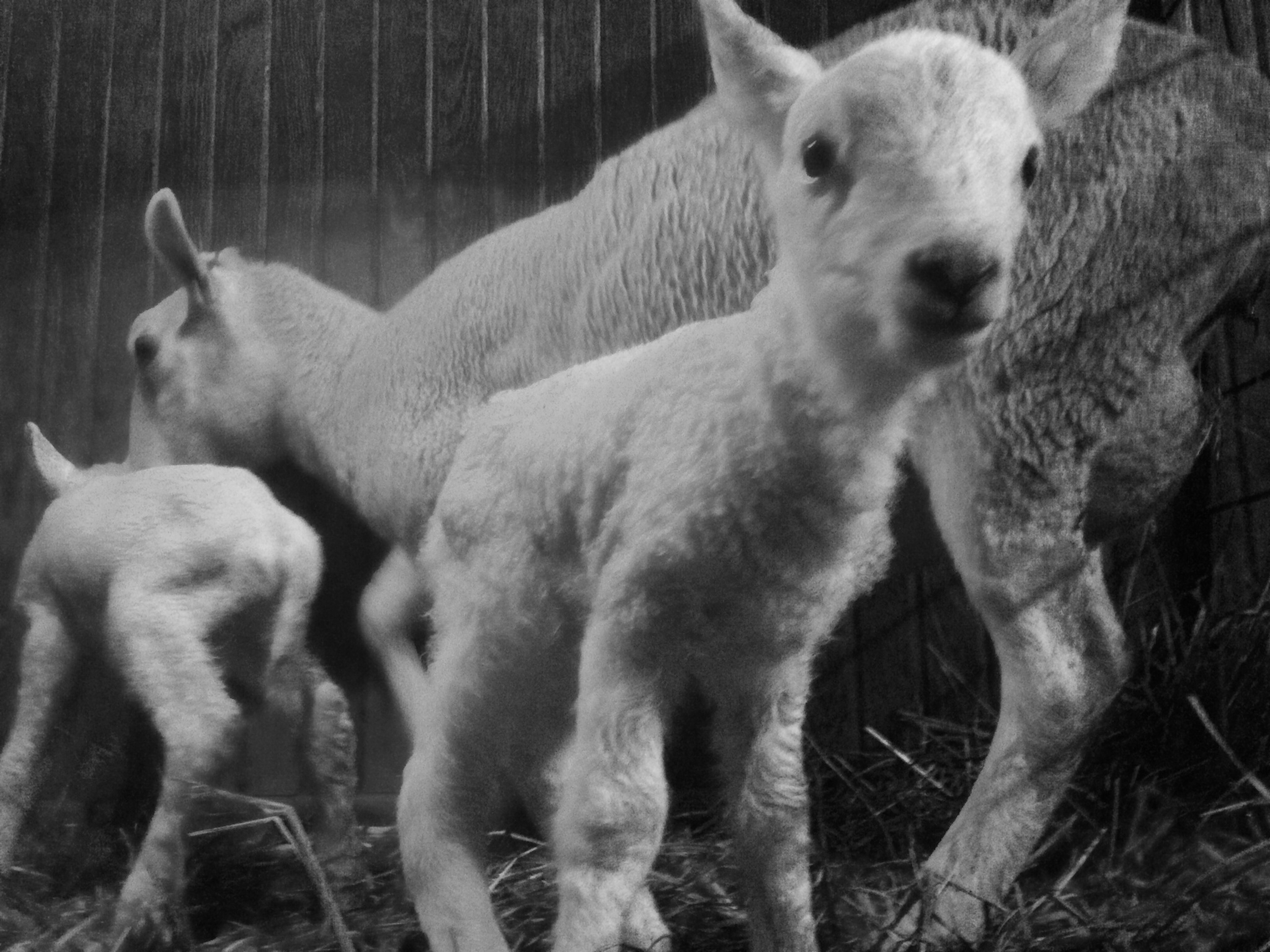They’re here! Our first two lambs of the year were born this week, happy and healthy!
Weighing in at an even eight pounds each, these strong lambs are starting our lambing season off right. Within the next month or so, the rest of the herd will deliver as well, so be on the lookout this spring! By April, the pasture will be full of small, springing, white Cheviots.
What is it like working on a farm during lambing season? I imagine it’s pretty close to working in a maternity ward during a full moon, the day before a big storm, in September. Except all of the patients are wearing white fur coats and demanding all-you-can-eat hay. But seriously, here’s a look at a normal day in February, inside the Erdenheim Farm Sheep Barn.
Early, every morning, we wake up to check on the progress any expecting mothers have made. By watching their movements, milk bag size, and manners, we can predict which mothers are going to be next. Throughout the day, periodic assessments are made and if one of the ewes gives the signal, we move her to her own deluxe birthing suite in the barn – equipped with a warm heat lamp and plenty of soft straw.
After the lamb or lambs are delivered (we have twins and triplets quite frequently here are Erdenehim!), the mother cleans them off and gets to know her babies. We check the mother’s milk supply to make sure she is ready for nursing. During pregnancy, ewes prepare for the birth of their young by producing milk. During this process, a wax like plug is created inside the teats to block any bacteria or dirt from entering the milk supply. We give the mother a quick milk check so be sure the plugs have been removed so the lambs can begin to nurse.
This is an important step to take when lambing because the newborn lambs need the colustrum, or first milk, from their mothers to survive. Colustrum is full of antibodies, protein, vitamins, and minerals. If a mother is having trouble with her milk supply, we can help by bottle feeding her offspring both a colustrum formula as well as milk formula. By checking our ewes frequently, we can ensure good health and survival of our flock.
What happens at night? We check them throughout the night too! We’ve set up systems so someone is always watching for any signs of new lambs. It’s a little more work, and while some people may think we’re spoiling our sheep (we do), it has produced wonderful results!


